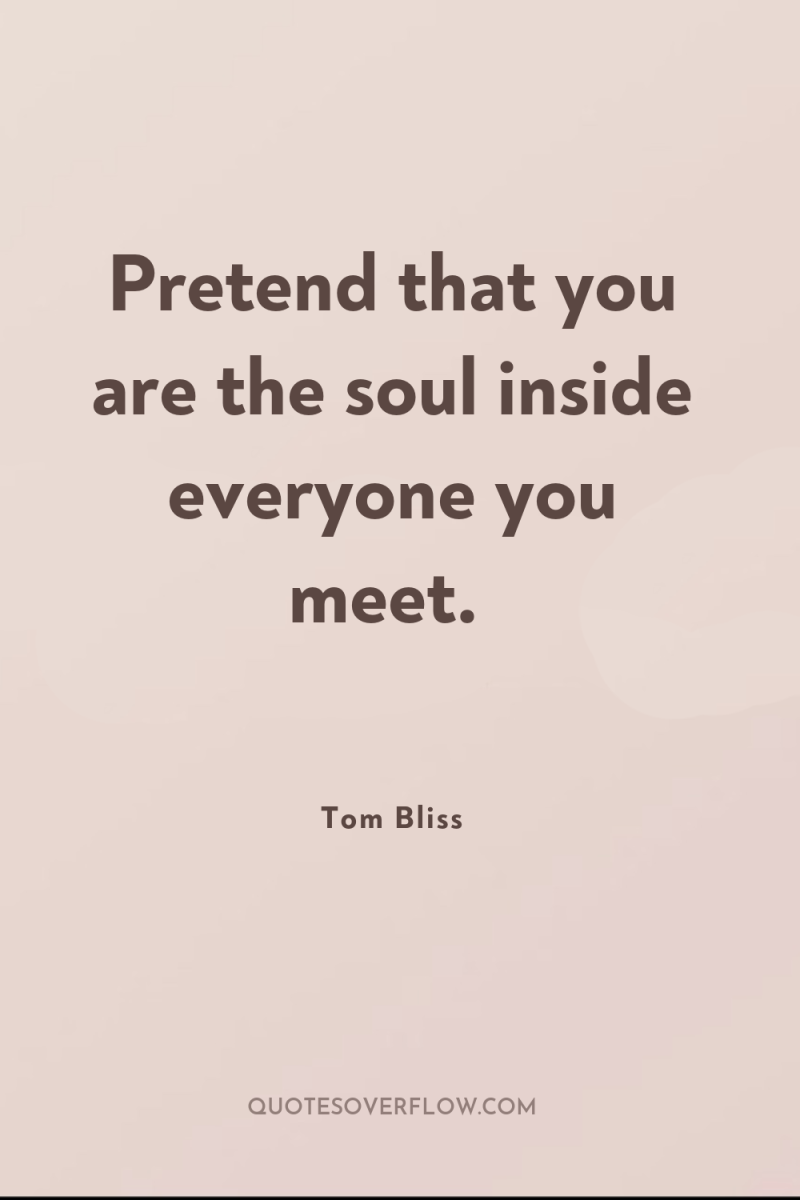1
Yes, sex is troublesome and beautiful. And only when we drop our expectations, and know that we'll have moments of great sex and moments when our sexuality confounds, pains, or infuriates us, will we be liberated to enjoy it in a way that's true to ourselves.Alexandra Katehakis
2
If we don’t honor our truth, how can we expect anyone else to do so?Alexandra Katehakis
3
People often ask: If there’s a God, how can He allow so much suffering in the world? Realize all world suffering you perceive is a mirror to your own psychological self-abuse, gender imbalance, prejudice, poverty, and hunger. You couldn’t even perceive each suffering aspect of external reality if it didn’t already exist within you. Touch and transmute your own psychological suffering, and perceive the world in kind.Alexandra Katehakis

4
Find the pitch and pace and syllables and words you love to hear. Delight your own senses, and self-romance.Alexandra Katehakis

5
Pretend that you are the soul inside everyone you meet.Tom Bliss
6
Caring is open-hearted, keeping us available to transmit love to a stranger through simple eye contact and without condition. This is not the opportunistic sizing-up of sexual cruising; instead, it’s the felt recognition of the divinity and humanity in another individual.Alexandra Katehakis
7
Tread lightly on your partner’s heart. It was given to you for safekeeping.Alexandra Katehakis
8
To develop emotional and erotic intelligence we need to practice enlarging our inner passion at every moment. It doesn’t matter what’s going on in our world, or even how we feel about ourselves in the moment. In fact, the best time to accomplishing something may be when we least feel like trying, because the hopeless part of ourselves most needs the light.Alexandra Katehakis
9
All of us lived life when sex was the farthest thing from our minds. Try to remember the careless freedom of play, basking in the beingness of others. As adults, responsibilities and obligations can often bind us to a daily grind. For some adults, then, sex might be one of the few interactions that restores their openness and sensory exploration of play. It’s not hard to see why sexual preoccupation might take over when people become locked out from experiencing fulfilling lives.Alexandra Katehakis
10
Perhaps the most important sexual tool is consciousness. If we think we are "not enough" or "too much, " we surely are. Similarly, when you give a gift, create artwork, or perform any task with the thought that it's "not enough" or "too much, " it surely will be.Alexandra Katehakis
11
The process of dissociation is an elegant mechanism built into the human psychological system as a form of escape from (sometimes literally) going crazy. The problem with checking out so thoroughly is that it can leave us feeling dead inside, with little or no ability to feel our feelings in our bodies. The process of repair demands a re-association with the body, a commitment to dive into the body and feel today what we couldn’t feel yesterday because it was too dangerous.Alexandra Katehakis
12
It’s crucial to practice self-empathy, for trust can’t be willed into existence. That didn’t work when our caregivers tried to impose their will on us, and it won’t work internally, either. Only when we can tap into a place of self-trust, with a reliable process of reparation for inevitable mistakes, can we build trust with another person.Alexandra Katehakis
13
The heart of compromise is the willingness of all parties to sacrifice reciprocally and equally for the greater good of a relationship. Reconciling conflicting needs for the sake of unity can't work if just one person does it. A coerced compromise, when one partner deceives or overpowers the other without allowing room for shared truths, usually results in an empty agreement that's soon undermined by unilateral acting out.Alexandra Katehakis
14
When loneliness is a constant state of being, it harkens back to a childhood wherein neglect and abandonment were the landscape of life.Alexandra Katehakis
15
How can you get through to yourself?Alexandra Katehakis
16
Endow yourself with healthy self-esteem. What is the feeling tone in your life that radiates in you and makes you shine, that makes you feel whole, that makes you feel your heart? That feeling tone, which we long to hear from others, is the tone we want to practice with ourselves. That’s where we want to live with ourselves. It doesn’t happen from the outside in. That’s why it’s called self-esteem.Alexandra Katehakis
17
Stand up for the underdog, the 'loser.' Sometimes having the strength to show loving support for unacknowledged others turns the tides of our own lives.Alexandra Katehakis
18
Are you repeating someone else's narrative, taking it for granted? Talk therapy sessions and 12-step recovery shares help develop the ability to present a coherent life narrative through the safe structure of clear rules of communication that support healthy self-expression and self-awareness.Alexandra Katehakis
19
We might feel that we must demonstrate explicitly when we’re upset, or not upset. This perceived need may stem from our family of origin, from how we learned to be heard when a simple “no” wasn’t enough. We may have learned to mask certain feelings, or portray feelings that weren’t ours. But as adults we each need to learn to state our personal truth without having to prove it or shout it. .Alexandra Katehakis
20
Nowhere is moral shortcoming more prevalent than in the intersection between our espoused morality and the way we engage romantic and sexual partners. In truth, how we function sexually is a microcosm of the way that we are in the world. We might ask ourselves, "Are we being selfish, considerate, or dismissive? Are we minimizing, compliant or controlling?" Sex is the ultimate laboratory where we can actually try out new ways of relating to ourselves and our lover, being conscious and mindful of how we impact another person. It takes great humility to open a genuine exploration of our lived--not just stated--morality. But to live by the dictates of our own internal compass brings equally great joy, serenity, and self-respect.Alexandra Katehakis
21
Superficial social niceties are far different from the deep emotion of thanksgiving.Alexandra Katehakis
22
Summoning gratitude is a sure way to get our life back on track. Opening our eyes to affirm gratitude grows the garden of our inner abundance, just as standing close to a fire eventually warms our heart.Alexandra Katehakis
23
Observe the rhythm of passers-by on the street, at work, everywhere. Summon loving acceptance and let their tempos move you emotionally and corporeally. Try to assimilate new ideas by trying out the rhythms of those you encounter.Alexandra Katehakis
24
All infants and children require and deserve comfort in order to develop properly. Soft cooing voices, gentle touch, smiles, cleanliness, and wholesome food all contribute to the growing body/mind. And when these basic conditions are absent in childhood, our need for comfort in adulthood can be so profound that it becomes pathological, driving us to seek mothering from anyone who will have us, to use others to fill our emptiness with sex or love, and to risk becoming addicted to a perceived source of comfort.Alexandra Katehakis
25
When we are able to look beyond appearances and to behold that which we truly are, we recognize that our essence is interwoven with the divine and that we exist as one of its expressions.Alexandra Katehakis
26
Sometimes what we seek to gain through "winning" a conflict is not worth what we're refusing to sacrifice. And true compromise often involves sacrifice: As on the path between Scylla and Charybdis, the monsters of Greek mythology who lie on either side of a narrow strait to devour sailors and ships, either way you go there will be losses. Through life experience we gradually learn to differentiate between the ideals, values and principles which can, and those which cannot, be compromised.Alexandra Katehakis
27
Sexual distortions carry strong undertones of prejudice–sexism, racism and homophobia–that rob individuals of their individuality. Common stereotypes include “men are all dogs, ” “women are less interested in sex, ” “gays are promiscuous, ” certain races are frigid or hung, and certain sex acts are indulgent, effeminate, or immoral. Other distortions clearly function as tools of organizations or of religious or political figures to shape public opinion through dogma and to control their followers’ lives.Alexandra Katehakis
28
There are marvelous sea creatures whose existences can be viewed only within the deep blue sea, and similarly we all have dear secrets that can be spoken only in the habitat of the heart.Alexandra Katehakis
29
Sometimes it’s only in the ecstasy of unrepressed movement that we may enter the stillness of our authentic selves. In such sacred moments, the world seems to be in step. This is why the idea of finding love across the dance floor endure – symbolizing that, when we know the true rhythm of our heart, we know the other.Alexandra Katehakis
30
Our souls yearn for connection with all souls. There are people we think we prefer and others we don’t, but half the time that’s a lie: We tell ourselves the fairy tale of our hatreds out of fear, but we revisit that tale as it suits us. Deep down, we’d love to love and be loved by all.Alexandra Katehakis
31
Intensity-seeking is an enslavement of our own perpetuation. When we step out of the delirium of always seeking someone new, and meet the same old sad and lonely child within, our healing journey begins. Exhausting ourselves with novelty is a defense against our deepest pain, one that we cannot outrun. But once we stop and feel our losses, we can begin our healing journey and be the authentic, joyous person we were born to be. .Alexandra Katehakis